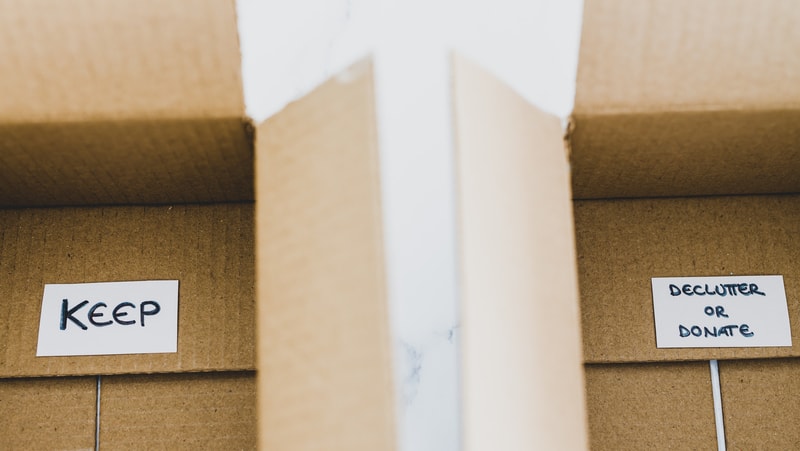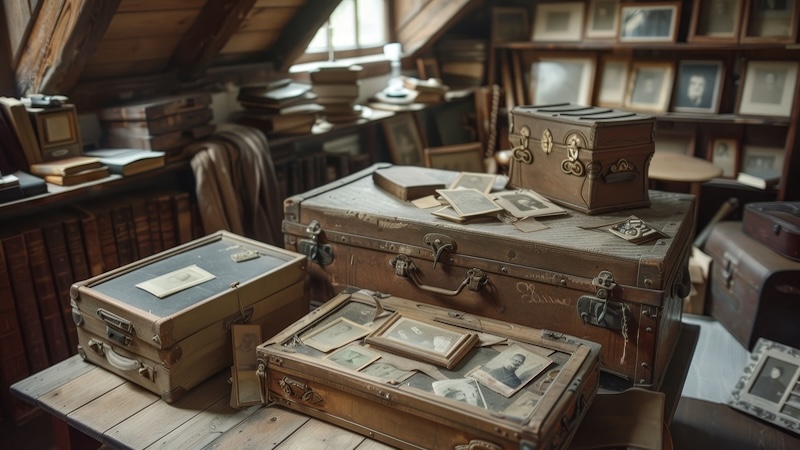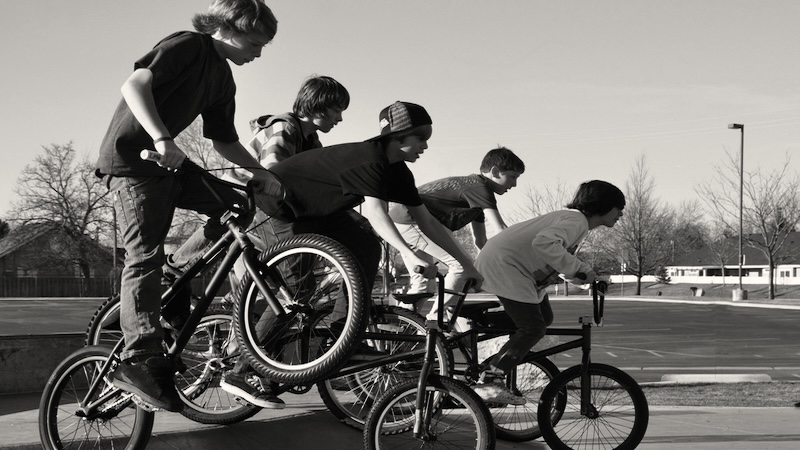Being Proactive in a Senior Move
Tips from a baby boomer who has been there, in this excerpt from ‘Seniors Matter(s)!’

Baby boomer Bill Pike talks about planning and decluttering for a senior move. He gives insights into his experience in downsizing after decades in the same house and offers recommendations for others making a move – or for those knowing that one day they will move, so now’s the time to start!
There are a number of things to consider, get in line, and plan for as we age BEFORE we need them. I believe there is no easy solution to this difficult decision-making task. The when and how varies for each individual.
It’s wise to start early; start small so the task doesn’t become overwhelming.
I have lived in my house for 43 years and most corners are full! I do not wish to leave a cleanup for my children to deal with. I have been starting my downsizing slowly by eliminating rooms I won’t have in my next home and getting rid of things I haven’t used or needed for many years. For example, my 1990 purchase of 200cm downhill skis is outdated in safety and of no use to me.
I donated them to the local recycling unit, and they were gone in four minutes.
Likewise, my three-year library of Reader’s Digest is now being enjoyed elsewhere. I never did go back and read them, so keeping hundreds of them was being nostalgic and unreasonable.
Looking ahead and behind to aid decisions
Before you move, you will need to focus on your new life and on what you’re taking with you. Decisions can’t be made until you’ve focused on your new lifestyle – on what you’ll be doing there and on what you need and don’t need.
You must think of your things in this way: you have enjoyed and appreciated them, now it’s time for another family to enjoy and appreciate them – or basically let them go. Think of downsizing your things as a process. Enlist help from family and friends who don’t have the same level of attachment as you do.
There must be lots of things sitting in the back of a closet or shelf that have been unused for a long time. Remember that lots of people could make use of it. Let it go so that it can do some good!
Reliving the memories associated with your treasures is an important part of the downsizing process. Sit down with loved ones and share the stories behind your objects.
More tips for planning and decluttering for a senior move
- You need to plan carefully for your new space. You need to evaluate the dimensions of the space you’re moving into and develop a floor plan.
- You need to recognize that you’re not going to get very much for many of your possessions that are precious to you for sentimental reasons, but many items are not rare, not valuable in a market sense. They are valuable to family and friends, so give things to them and take some favorite things with you.
- Before you get rid of your items, get advice and take your time. Get an appraiser
- You can take photos of things you want to sell and e-mail them to prospective buyers.
- You need to label things for their destination (new house, family/friends, sale, donation, or recycle/dispose).
- You need to make sure your things are clean and in good working order. Before you sell or give them away, plug them in and make sure they’re completely operational.
- Online shopping formats are a great way to test the market.
- Old camera equipment may be welcome at local schools that have photography programs.
- There are lots of great places for your things. You can Google “furniture donation” and your location for a list of options. For example, The Furniture Bank in Toronto gives to immigrants. We were all immigrants once, so this is a great solution! In British Columbia, try Homestart, which gives furniture to homeless families. You can also donate household articles to local women’s shelters. When people call from a charity saying they’ll be in your neighborhood next week, always say, “Yes!” It will give you the inspiration to go through your closets and find something you can donate.
- It’s very tiring, emotionally and physically, to go through your things, so limit each session to no more than three hours.
- Once you make a decision about something, stick to it. Don’t let items pile up in the garage, the back of the car, or the front hallway.
- If friends or family members want certain items and are coming to pick them up, give them a deadline. Say that it will go onto the charity truck if they don’t come at the specified time.
- Make decisions and move the process along. When you decide to move, you need to hire the right moving company
How long will it take to downsize?
There are a number of factors to consider: How long have you been in the house? How many rooms do you have? Is your home sparsely finished or do you have a lot of stuff? Do you regularly declutter or is this the first time in a long time? It’s unrealistic to expect that in three days or a week, you’ll clear everything out. Set a realistic time frame, share it with others, invite help/consultation, and remain committed to your schedule. You need to stick to deadlines.
You can get someone else to help you make decisions so that you have another pair of eyes. Downsizing can be an emotional minefield because you have too many memories attached to your things; you need someone who has no association with them.
I started by setting aside 15 minutes once a week to do some decluttering – a drawer, a shoe closet. After two weeks, it was amazing how many green bags had moved on!
You need to make it a general part of your routine. Then, if you do decide to move in two years, you’ll be much better prepared, physically and mentally.
Obviously, it is best to start downsizing while you are still in good health, one room or area at a time. That way it won’t become an overwhelming emotional issue when you are less able to deal with it.
If you are struggling, handyman firms (like Two Guys and a Truck!) can help you clear your space.
“Everybody is a genius. But if you judge a fish by its ability to climb a tree, it will live its whole life believing that it is stupid.” — Albert Einstein
Bill Pike is a retired elementary school principal who has lived in Kincardine, Ontario, for 47 years. In March 2021, he published the paperback and e-book Seniors Matter(s)! a compilation of weekly articles written for a local paper. The project began as an effort to share his interest about the topics affecting seniors and how they can advocate for their issues. Follow the red links or click on the book cover to view the book on Amazon, or contact Bill directly at billpike3@gmail.com.
The statement “Getting old isn’t for the faint of heart” is real, says Pike. The rewards of retirement can sometimes be accompanied by aches, pains, medical concerns, and general wellness issues. In his book, Seniors Matter(s)!, Bill Pike takes a look at the good, the bad, and the ugly of senior living. He includes numerous checklists and tips that will help elders navigate the seas of this new millennium. Don’t laugh at age, pray to make it!
Read more childhood memories and other contributions from Boomer readers in our From the Reader department.
Have your own essay, childhood memories, or other story you would like to share with our baby boomer audience? View our writers’ guidelines and e-mail our editor at Annie@BoomerMagazine.com with the subject line “‘From Our Readers’ inquiry.”




